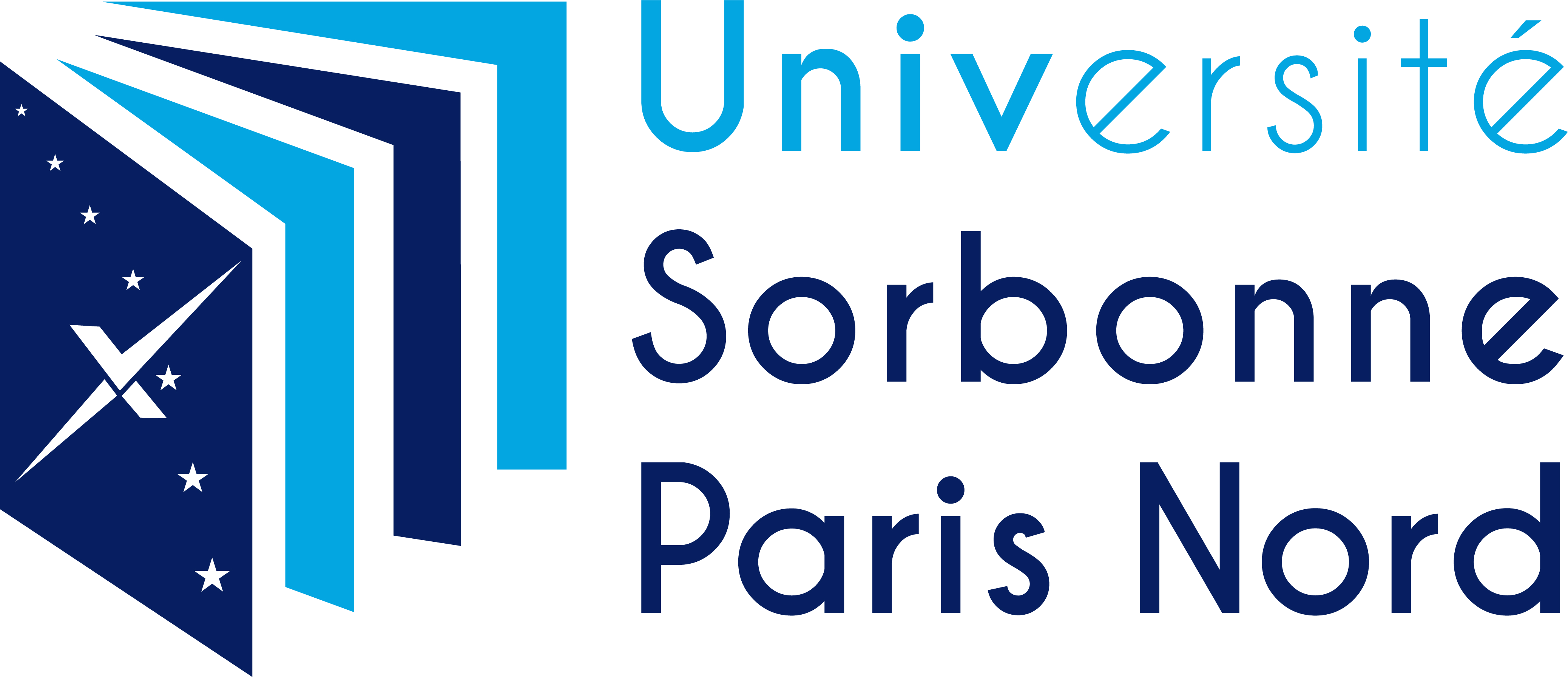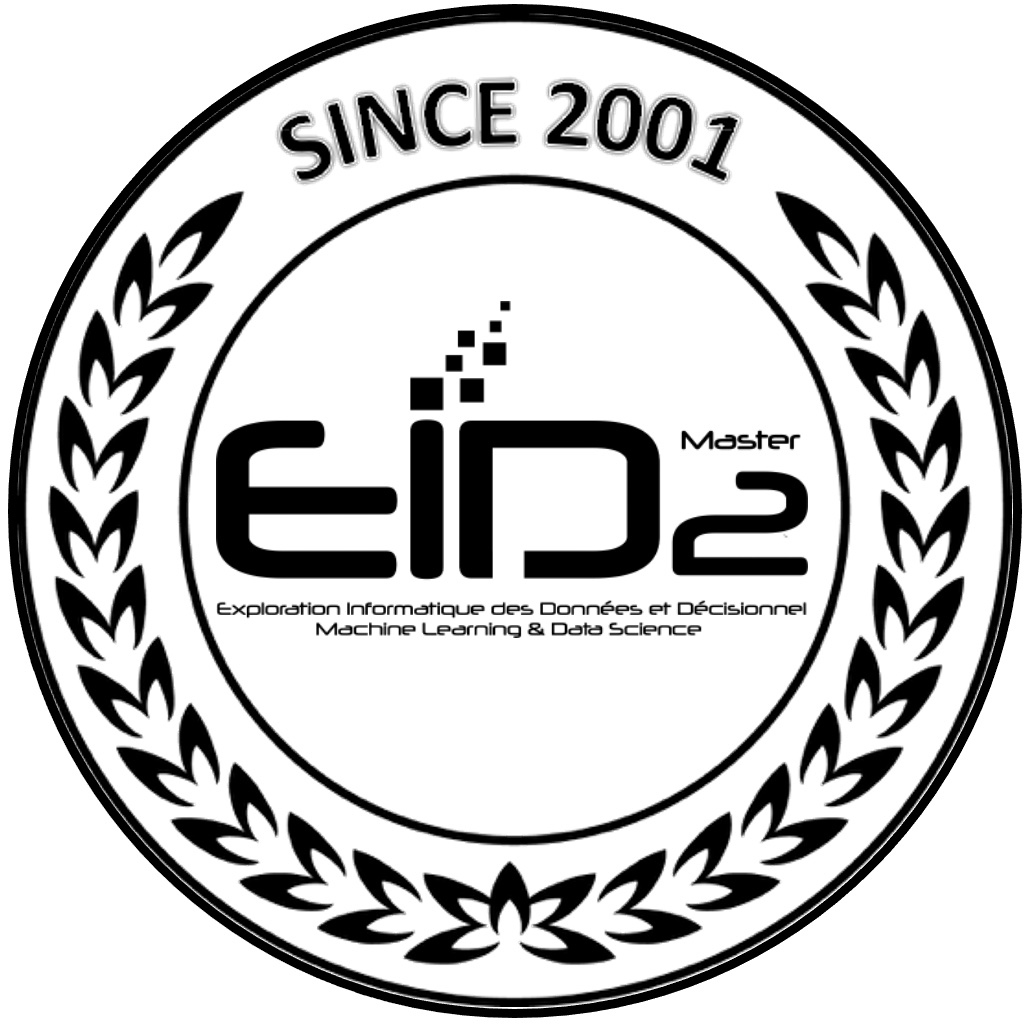Program objectives
The first year of the program is made of two core semesters of
broad-spectrum Informatics classes. It gives students the necessary
skills to tackle in-depths subjects in the second year of the program.
The specialty EID2 MSc focuses on data science and machine learning.
The program is particularly suited for students who have completed a
Bachelor’s degree (or equivalent) in one of the fields of computer
science, mathematics or statistics, and wish to pursue a career in data
science and analytics.
The EID2 MSc is designed to produce graduates with the knowledge and skills to:
• Select, apply and evaluate machine learning,
business analytics and data mining techniques which are focused on
discovering knowledge that can be acted on to add value to a company.
• Bring both an in-depth theoretical understanding,
and the practical hands-on experience, to a data science and machine
learning project including implementing novel and emerging techniques.
• Keep abreast of current research and business analytics related topics.
Program overview
The cornerstone of this Master's program in Informatics lays on a tight
link bridging the university's research and teaching vocations. This
strong connection is realized through elective orientation and
discovery classes allowing students to define their professional goals.
In the second year of the Master's program, part of the third semester
offers several concentrations each with their specific curriculum,
while still keeping a common core of foundational, discovery and
cultural “TUs” (Teaching Units).
The program for the EID2 MSc is built on a foundation of core and
elective courses. This program joins courses with a Computer Science
main theme, those with a Statistical data analysis, Data Science,
Machine Learning, Advanced Databases, Data Mining, Business Analytics,
and Data Warehousing main theme, and those with cultural courses. The
electives courses may be chosen, in consultation with the student's
advisor, to meet the interdisciplinary and the speciality
distribution requirements. The fourth semester is devoted to an
internship specific to each concentration and that can focus on either
research careers or engineering careers.
Performance assessment
• Year-long tests and final exams
• M1 (first year) thesis and M2 (second year) internship: written report and oral defense.
Admission requirements
• M1: students can be admitted into the first year
(M1) or second year (M2) of the program. In general however, admission
is selective into the first year to any student holding a Bachelor's
degree in informatics.
• M2: to be admitted in the second year of the
Master's program, students must pass the first year of a Master's
degree in IT. Admission is granted by the president of the University
upon the recommendation of the program's director. The program's
director requests the opinion of a jury on each student's ability to
perform in the second year of the program. For students coming from
other Master's programs (mathematics and IT, statistics, Applied IT for
Business Management…), admission may be granted upon review of the
applicant's background in Informatics.
Career placement
• Jobs: graduates from the Master's degree in Informatics generally find employment as:
- Data scientists
- Data miners
- Project Managers in decision-making
- Designers of specialized software tools
- Research and development engineers
- Consulting experts in decision-making
- Researcher (with a PhD) in the fields of machine learning, data science, decision-making.
• Fields: in high-tech areas of Aeronautics,
Automotive, Telecommunications, Automatisms, Robotics, Energy,
Laboratories, Banks, Insurance companies, service and applications IT,
Retail.
Further education
After graduating from the Master's program, students can get into PhD
programs with research teams within the LIPN and within other
partnering labs such as the LAMSADE (Université Paris 9), the LIP6
(Sorbonne Université), the LRI and the LIMSI (Université Paris-Saclay)
or any other university or industry lab, as well as with the IFSTTAR,
INRIA, INRA, CENAGREF, IRD and IGN. Funding opportunities for PhD
research are available with Cifre scholarships.
M1: Semester 1 (S1)
First week: Review (10 h of Algebra and 10 h of Analysis)
Foundational TU (1)
• Advanced data structure (4 ECTS credits)
• Fundamentals of programming (5 ECTS credits)
• Database engineering (5 ECTS credits)
3 Discovery TUs
• Algorithmic geometry (4 ECTS)
• Dynamic systems specification (4 ECTS credits)
• Exploratory data analysis (4 ECTS credits)
• IT networks (4 ECTS credits)
• Knowledge representation (4 ECTS credits)
• Security and information theory (4 ECTS)
• Transition systems & model checking (4 ECTS credits)
Transversal TU
• English (2 ECTS credits)
• Communication and Writing Techniques (2 ECTS credits)
• Free (Sport, International Mobility, Associative Activity) (Bonus)
M1: Semester 2 (S2)
Foundational TU (2)
• Compilation (5 ECTS credits)
• Distributed Java programing (5 ECTS credits)
3 Orientation TUs
• Algorithmics on words (4 ECTS credits)
• Constraint programming (4 ECTS credits)
• Distributed systems (4 ECTS credits)
• Internet of Things (4 ECTS)
• Matrix factorization methods for data mining (4 ECTS credits)
• Operational research (4 ECTS credits)
• Research initiation (4 ECTS)
• System administration (4 ECTS credits)
Transversal TUs
• English (2 ECTS credits)
• Communication and Writing Techniques (2 ECTS credits)
• Project leading and managing (4 ECTS credits)
• Free (Sport, International Mobility, Associative Activity) (Bonus)
M2: Semester 3 (S3)
Module (DSML): Data Science and Machine Learning
• Statistical multidimensional data analysis (3 ECTS)
• Statistical learning (3 ECTS)
• Digital Data Science (3 ECTS)
• Neural Networks and Deep Learning (3 ECTS)
Module (DEBI): Data Engineering and Business Intelligence
• Advanced Databases (3 ECTS)
• Data Mining (3 ECTS)
• Data Warehousing (3 ECTS)
• Business Intelligence (3 ECTS)
Transversal TU
• English (2 ECTS credits)
• Innovation (2 ECTS credits)
• Soft skills (2 ECTS)
• Free (Sport, International Mobility, Associative Activity) (Bonus)
M2: Semester 4
2 Deepening TUs
• Abstraction and refinement (3 ECTS)
• Data flow and programming (3 ECTS)
• Decision-making support (3 ECTS)
• Grids and cloud computing (3 ECTS)
• Human-Machine Interaction (3 ECTS)
• Infinite, timed and hybrid systems (3 ECTS)
• Learning visual representations (3 ECTS)
• Learning, constraints, planning (3 ECTS)
• Quantum computing (3 ECTS)
• Social network analysis (3 ECTS)
• Speech analytics (3 ECTS)
• Textual data processing (3 ECTS)
• User eXperience design (3 ECTS)
Internship
The fourth semester is targeted to the writing of a dissertation during an internship in either a laboratory or a company.
• Industry/Laboratory internship (24 ECTS credits)




